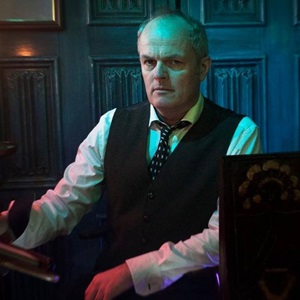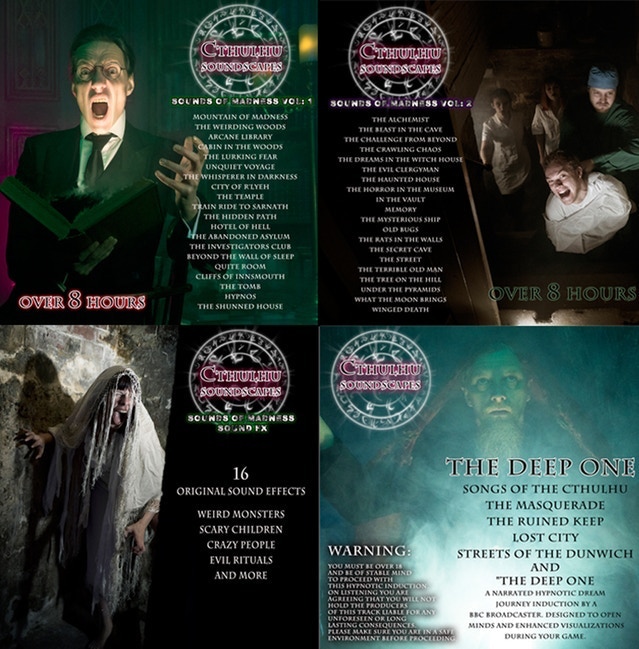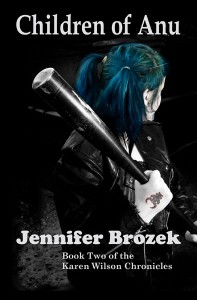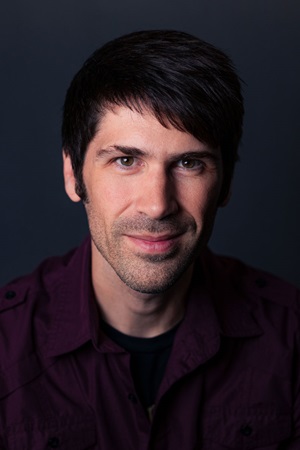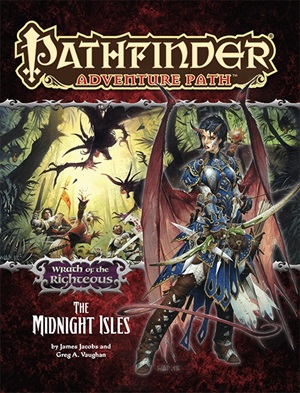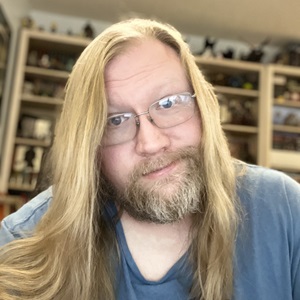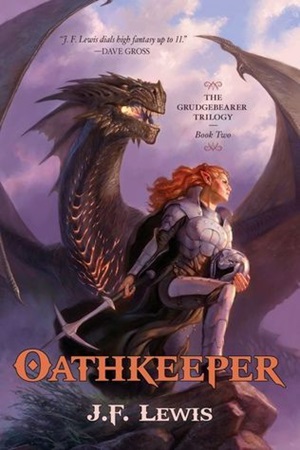Each week, I’ll pester one of my creative colleagues with five questions about his or her work and, if I’m feeling wicked, deeply personal issues. Most of these folks are friends, a few are secret enemies, and one has been blackmailing me for years.
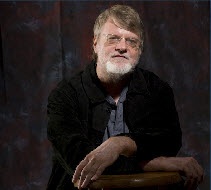
I first encountered Richard Lee Byers when he and I contributed to The Halls of Stormweather, an anthology of novellas featuring members of the Uskevren household. My character was the younger of two sons, and Richards’s was our mama.
Since then, I’ve bought a story or two from Richard, and we bump into each other at Gen Con. So far, neither of us has challenged the other to a duel, but it’s only a question of time.
1. You and I have a few things in common: the Forgotten Realms, Pathfinder Tales, and a love of pulp fiction. Please tell us about your New Pulp series, The Imposter.
A few years ago, I decided to try some self-publishing. People said it was the future of the business, and some of the cool kids like Mike Stackpole were doing it. Partly, I did it by collecting previous published short fiction and releasing one of my early horror novels (interested parties should look for The Q Word and Other Stories, The Plague Knight and Other Stories [available soon], and The Vampire’s Apprentice), but I wanted to put out something original, too.
I decided to do a superhero series for two reasons. One was that I’m a lifelong comics fan and had always wanted to write superheroes. The other was that I didn’t feel like self-publishing something that might actually have a chance of selling to a traditional publisher. I wanted to do something that would be fun for me and that I thought readers might like, but which I was sure New York publishing would reject out of hand. I figured superheroes in prose fit the bill.
Here, by the way, you see the same keen insight at work that has served me so well throughout my career. Traditional publishing is doing prose superheroes now. But, oh, well.
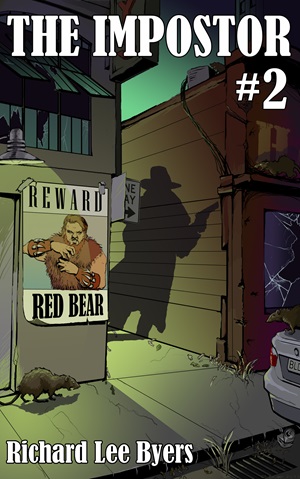
Here’s the premise of The Imposter:
Matt Brown lives in a world of superheroes and supervillains, of mutants, sentient robots, and monsters, but none of that has anything to do with him. He’s just an ordinary guy living an ordinary life… until alien invaders attack the Earth, and all of humanity’s costumed champions go down fighting. By chance, Matt falls heir to their powers, but how can a fake hero save the world when the real ones have already failed? To find out, he begins a quest through a post-apocalyptic world where alien horrors and human supercriminals battle for dominion.
There are two volumes so far, The Imposter #1: Half a Hero and The Imposter #2: The Blood Machine. Each contains four novelettes plus a bonus story. People can also download The Imposter #0: Suiting Up for free. #0 is Matt’s origin story and the first of the novelettes from #1.
2. While I haven’t written a Realms novel in over a decade, you remained and have become one of the pillars of the setting. Which characters are you using in The Reaver: The Sundering Book IV? And how will this series change the face of the Realms?
Let me answer the last part of that first.
Several years ago, Wizards of the Coast, in an effort to create a great jumping on point for new readers, shifted the Forgotten Realms forward in time a hundred years. There was also a supernatural cataclysm called the Spellplague intended to introduce new challenges and wonders for gamers and the heroes of the novels to encounter.
To make a long story short, these maneuvers accomplished much of their purpose, but over time, it became clear that in the process, the Realms lost some of the elements that made the setting special. The Sundering will fix that. Its another big, transformative event, and without any cheesy time traveling and undoing history or waking up and finding Bobby Ewing in the shower, it will bring back what fans have been asking for.
I can’t go into much more detail than that because I don’t want to spoil the surprises.
There are Sundering-related gaming products that people can find out about on the Wizards of the Coast site. On the fiction side, The Sundering is a series of six novels coming out every other month. These are The Companions by R. A. Salvatore, The Godborn by Paul S. Kemp, The Adversary by Erin M. Evans (12/13), The Reaver by me (2/14), The Sentinel by Troy Denning (4/14), and The Herald by Ed Greenwood (6/14.) Each book tells us a self-contained story, but readers who read them all will get the Big Picture of what’s happening to Faerûn.
For the most part, the other authors used their established series characters. Bob used Drizzt, Ed is using Elminster, and so on. But Prophet of the Dead, my most recent Brotherhood of the Griffon novel, didn’t leave Aoth Fezim and his sidekicks well positioned to do what my novel needed them to do. So I wrote about new characters. My protagonist is Anton Marivaldi, one of those most notorious pirates on the Sea of Fallen Stars.
3. You’re one of several writers who have contributed to both the Realms and to Pathfinder Tales. What do the two settings have in common? What sets them apart from each other? Are there locations in either of them that you’d most love to explore in a new novel?
Well, the similarities are pretty obvious. They’re both worlds of magic and high adventure that connect to Dungeons & Dragons or a variant thereof.
To me, the primary difference is this:
The first Forgotten Realms product came out in 1987, and there have been hundreds since. There’s been so much development that while we can still see Ed Greenwood’s influences if we look for them, the Realms feels like itself and nowhere else.
In contrast, the world of Pathfinder has only been around since 2009. It has, of course, seen considerable development since, but I think the literary influences that went into it are still quite visible. You can look at one area and see that it drew inspiration from Edgar Rice Burroughs, observe that a different region reflects the work of Robert E. Howard and others. Since I love the great pulp writers myself, I don’t see that as a bad thing. I think that in its own way, it’s a strength.
With regard to pet areas, well, in the Realms, my last several books have dealt with the northeastern part of Faerûn, and I like it. If I’m offered the chance to do more Realms novels, I imagine I’ll keep hanging out there. I would like to get back to the Moonsea area specifically. I haven’t written about it since I did the “Year of Rogue Dragons” trilogy.
Pathfinder Tales: Called to Darkness is set mostly in the Darklands, and if I get the chance to do another Golarion book, I’d like to explore that underworld some more. There’s lots of cool stuff down there I wasn’t able to work into the first novel.
4. How does your experience as a fencer inform your scenes of sword fights?
Modern sport fencing is stylized, constrained by rules and conventions, and thus significantly different from the reality of fighting for one’s life with a sword. There are things I do with a fencing weapon that people couldn’t do with a broadsword or rapier (they were too heavy), and other moves I wouldn’t attempt if I were risking getting cut or stabbed and not just losing a point.
That said, though, the underlying principles of attack, defense, distance, tempo, deception, etc. are the same. On that level, learning fencing can help the writer write not just sword fights but any scene of hand-to-hand combat.
5. As an author of both novels and short fiction, what do you prefer about either form? Financial realities aside, if you could write only one form from now on, which would you choose and why?
That’s a tough question.
I like short fiction because you can hold the entirety of a short story in your head all at once and tinker and polish it until it works perfectly (or at least it feels like it’s this efficient little machine elegantly designed to achieve a particular effect without any waste motion.) Also, short stories are finished before the writer gets sick of them.
In contrast, novels are too big and complicated to focus on all the details at once and thus it’s impossible to fine-tune them with the same precision (or at least I find it so.) Thus, I never get to that same moment of feeling like, Yes, by god, that’s exactly what I meant to do. Plus, novels are not over before you’re sick of them. For me, no matter how enthusiastic I am about a novel, there’s always a point, usually around two thirds of the way through, when grinding out the damn thing becomes a slog.
On the other hand, though, when a novel is going well, I become even more immersed in that world than I am in the world than I am in the world of a short story. And that intense emotional involvement is part of what makes writing fun for me.
So, really, it’s a toss up.
Richard Lee Byers is the author of forty fantasy and horror novels including the urban fantasy Blind God’s Bluff: A Billy Fox Novel. He has published dozens of short stories and writes a monthly feature for the SF news site Airlock Alpha. He invites everyone follow him on Twitter, friend him on Facebook, add him to your Circles on Google+, and read his Livejournal blog.

